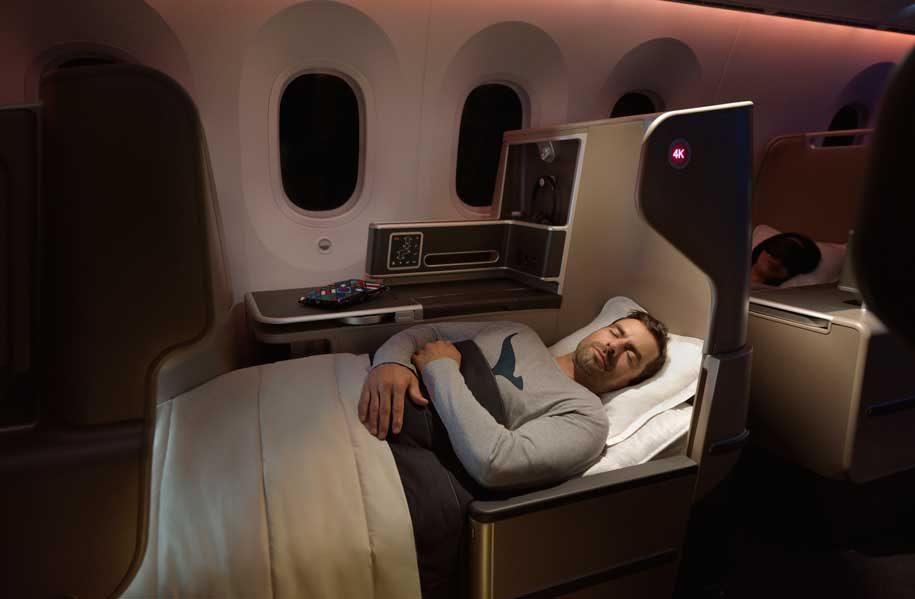
Qantas Frequent Flyer members are now able to earn Qantas Points simply by sleeping, with Qantas rewarding members for developing healthy sleeping routines and switching off from using their electronic devices before they go to bed.
The Australian carrier already offers points for members using its Qantas Wellbeing app for engaging in healthy lifestyle habits, including walking, cycling, swimming and developing a better understanding of their body mass index (BMI) and blood pressure.
Members can earn five points per night by doing the “Sleep Health Challenge”, which requires users to set a bedtime routine, place their smartphone down at least 30 minutes before going to bed, and refrain from moving it until they wake up the following morning.
The earning rate drops to 0.5 points per night after the first month unless users are also Qantas Insurance policyholders, and an additional 20 points can also be earned on a one-time basis for completing a 10-question sleep quiz.
Admittedly, members are hardly going to get points rich simply by sleeping properly throughout the course of a calendar year. At most, a person who successfully completes the challenge daily for a whole year, along with finishing the quiz and being a Qantas Insurance policyholder, would accrue just 1,845 points.
By way of comparison, a one-way upgrade to business class from a Flexible Economy fare travelling between Sydney and Melbourne would cost 5,000 points; while a one-way economy class award ticket on the same route would set you back 8,000 points.
That being said, the extra points may just be enough to tip the scales and could save members the need to purchase top-up points with cash if they find themselves a few points short of a redemption.
According to Dr Gemma Paech, a sleep scientist with The Sleep Health Foundation, electronic handheld devices are particularly to blame for people developing poor sleep patterns.
“Blue light from phone and computer screens at night can disrupt the production of melatonin – an important sleep hormone that regulates our internal body clock, lets us know when it’s time to sleep and helps us have good quality sleep,” said Paech in a statement in Qantas’ press release.
“Not only this, but looking at a phone before bed and during the night can be stimulating and may evoke an emotional response, making us more alert when we should be asleep, resulting in fragmented sleep across the night.”
Qantas is not alone in trying to aid customers’ sleep patterns through the use of an app. Japan’s All Nippon Airways (ANA) announced last year that it was working on developing a mobile app aimed at reducing jet lag, as part of a new series of initiatives under its ANA Travel Wellness programme. The airline aims to launch the app in April this year.












